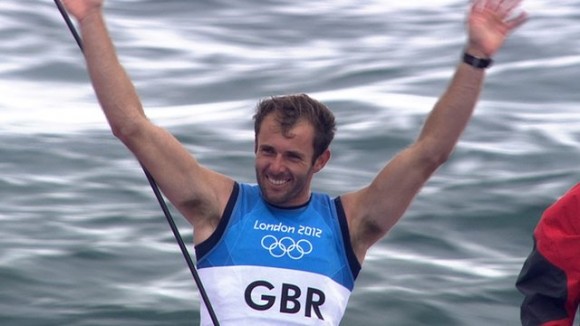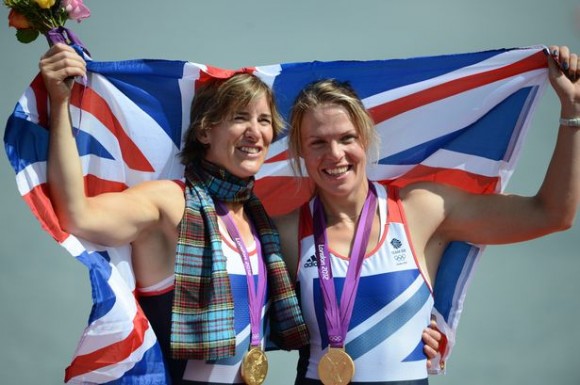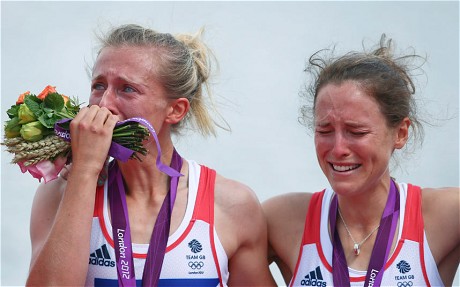Gorn my son! (What the Olympics taught me about writing)
I’m not quite sure at which point I bought into the Olympics wholeheartedly, but it was probably somewhere around the time I turned to my husband during the opening ceremony and said: ‘Blimey! That’s the best Queen impersonator I’ve ever seen…Oh My God!’ Or maybe it was when the house rose up to reveal Tim Berners-Lee waiting inside, or maybe it was when Doreen Lawrence entered the stadium bearing the Olympic flag. Whenever it happened, by the end of that glorious and inspired evening, I was sold. Since then, I have spent more hours on my sofa than I care to admit, shouting at the telly and weeping uncontrollably. It’s been brilliant.
Something that has struck me – amid the shouting and crying – is that writers have a lot to learn from athletes. Not about physical prowess (writers are already finely-honed specimens; nothing we can learn there), but about the Head Game. For example…
You are not defined by one bad result
What do you do after you’ve tanked? Olympians tend to get up and try again (and again, and again – see below), because failing once doesn’t mean you can’t succeed next time. There are countless sporting examples of this. Here’s mine: Windsurfer Nick Dempsey won bronze in Athens, and failed to get any medal in Beijing. But…

Here he is this week after winning silver
It’s not just about athletic fitness, but also about psychological fitness, the ability not to be defined by the last thing you didn’t get right. In writing, this happens all the time. We’re constantly getting things wrong. It could be a bad sentence, or page, or chapter – or even whole years when things just aren’t happening for us. It can be hard to believe that we’re capable of success, but in fact I’d argue that, in creative endeavour, getting it wrong and making mistakes are essential precursors to getting it right.
Author Michael Chabon enjoyed massive success with his first novel, The Mysteries of Pittsburgh, and then started work on his second. Five years and 1500 pages later, he was in crisis – the book wasn’t working. Unbeknownst to his agent or editor he abandoned it, only to spend hours staring at a blank computer screen. When inspiration finally hit, he completed the new book in seven months. It was Wonder Boys, and it was fab and hugely successful. It is also – if you haven’t read it – a painfully funny story about a writer wrestling with an unfinishable novel. Can’t imagine where he got his material.
Persevere
Famously, rower Katherine Grainger competed in three Olympiads, winning silver medals in each, but always ambitious for gold. This year she came back for one more shot. As you can see here…

She succeeded! Plenty of sofa-weeping on that day, I can tell you
It’s a truism that writers should persevere. When we’re unpublished, we hear it all the time – keep going, keep going – and sometimes we think it’s just a nice way of fobbing us off.
So how long should you persevere for? I thought I’d ask Twitter this, and I had a rough estimate in mind: fifty rejections and you’re entitled to give up. Then I got these tweets from author James Smythe:
@shelleywriter I had over a hundred (assorted agents, short stories, publishers) before I wrote the book that got me an agent.— James Smythe (@jpsmythe) July 27, 2012
@shelleywriter With me, nothing for four years, then sold a book to an Indy and had three agent offers within a month or so.— James Smythe (@jpsmythe) July 27, 2012
@shelleywriter Absolutely felt like persistence paid off. But was absolutely ready to give up, bluntly.— James Smythe (@jpsmythe) July 27, 2012
Unknowns can win gold
More rowers I know, but the rowers really got to me. This time it’s Sophie Hosking and Katherine Copeland. They’d only been together for three months before the Olympics, and expectations were low. But they won gold.

I think they were really quite happy about it
Before I got published, I thought you had to be anointed in some way in order to get a book deal. You had to have been to Oxford University, or work in publishing, or be related to a writer, or know everyone. But it’s all about the book, just as it’s all about the race. This year’s biggest debut (after the inevitable Fifty Shades) was written by S J Watson, a former NHS worker who wrote Before I Go To Sleep in the evenings and at weekends. Stephen Kelman grew up on a Luton estate and worked in a factory before writing the Booker-shortlisted Pigeon English.
So that’s some of what I’ve been learning. I could go on: how ten seconds of glory on the track takes four years of training; how writing, like the 10,000m, is a long game; how we’d all benefit from having our own personal sports psychologist. And if I’ve left you less than convinced about the link between athletic and literary prowess, perhaps you should watch this video by author Joe Craig; here you can see the physical endurance of writers tested to the limit. But in the meantime, I’m off; the open water swimming is about to finish and there’s a box of tissues with my name on it.